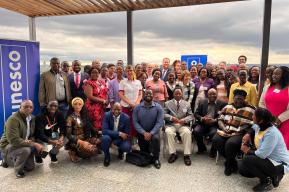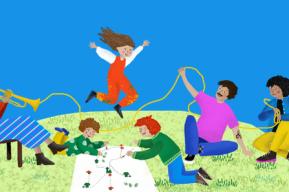News
Mapping and Tagging of Existing Alternative Learning Resources for ALS Equivalent to K-12 Basic Education in the Philippines

In collaboration with the Philippines’ Department of Education (DepEd) and the Asia Pacific College (APC), UNESCO Office, Jakarta organized a “Workshop on the Mapping and Tagging of Alternative Learning Resources for Alternative Learning System Equivalent to K-12 Basic Education” on 5-9 August 2019 at the APC Campus in Makati City, Philippines. The workshop is a series of eight (8) key activities to produce the ALS learning materials, specifically the ALS teacher’s guidebook and ALS learner’s books. The development of ALS learning materials is part of the “Better Life for Out-of-School Girls to Fight Against Poverty and Injustice in the Philippines” Project of UNESCO Office, Jakarta with the funding support of Korea International Cooperation Agency (KOICA).
The output of the workshop is the first draft of the new modules/teaching-learning materials for ALS from the six learning strands. The participants consist of expert staff from the Department of Education such as from the ALS National Task Force, Bureau of Learning Resources (BLR) and Bureau of Learning Delivery (BLD) together with the workshop facilitators of APC, the consultant, content experts and writers including lay out artists/illustrators.
The main facilitator from APC, Ms. Mildred Parbo, delivered a short remark and introduced the programme agenda with the expected tasks to be done and completed by the participants during the 5-day workshop. In her remarks, Ms. Parbo conveyed that APC is pleased to be part of the initiative of helping DepEd and UNESCO in the area of developing learning materials for alternative learning system.
The Consultant for the UNESCO Project in the Philippines, Mr. Marmon Pagunsan, shared encouraging thoughts to the participants on the impact of the project’s initiatives to the lives of out-of-school children especially girls. He reiterated that by accessing education and being able to earn education, ALS learners can change the course of their lives for a better future. UNESCO conveyed its appreciation to DepEd for its cooperation and APC for its keen interest in the partnership of developing the ALS learning materials. Likewise appreciation was conveyed to KOICA for their financial support that the current efforts should be able to contribute to the attainment of SDG4 in the Philippines.









